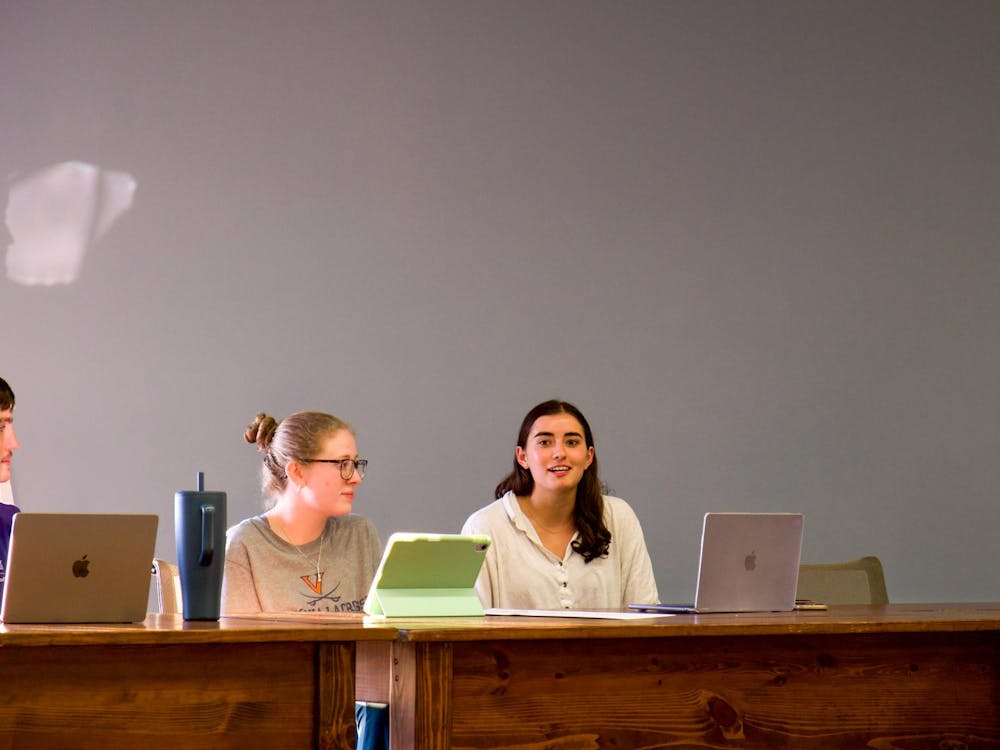Following faculty members' evaluation of the successes and shortcomings of the University's administration, the Faculty Senate met yesterday to examine results of the faculty survey compiled by the Faculty Recruitment, Retention & Welfare Committee.
The complete results of the faculty survey outlined both satisfactions and concerns of the faculty, as well as the ways that the committee plans to address them, Committee Chair Jennifer Harvey said.
"It was very inclusive," she said, noting that 61 percent of University faculty responded to the survey.
The survey results covered a broad spectrum of issues, Harvey said, which were broken down into three categories: collegiality, academic community and Charlottesville community.
While the survey showed faculty members felt collegiality, which included cooperative interaction between colleagues, "varied widely by school and department," she said, in terms of academic community "most members of the faculty were satisfied with the people around them: undergrad students, departmental faculty, faculty of their school."
Many of the other issues addressed, such as faculty priorities and transparency concerns of general faculty, will require a response on an individual school basis, Faculty Senate Chair Ricardo Padron said.
While it is difficult to draw a concise plan from the survey's results, this feedback will allow the committee to move forward in addressing the faculty's concerns, Padron noted, citing a newly organized task force focused on concerns of the general faculty as an example of this advancement.
"Our goal right now is to get our information to the people who can use it," Harvey said.
These survey results could be more valuable than expected in determining how to address current faculty concerns, Padron said.
"We learned a lot more about a lot of things ... than we thought we were going to," he noted.
In addition to addressing faculty survey results, the Senate also debated support for a resolution concerning environmental sustainability and change, voting to support a Resolution on Climate Commitment , which encourages the University to commit to better energy efficiency policies. The commitment includes a two-part proposal that focuses on ways in which conservation could be enhanced at the University, according to Art History Prof. Malcolm Bell, III, the resolution's co-sponsor.
"The resolution proposes to reduce energy and emissions over the next 10 years, with an annual reduction of three percent," Bell said.
Padron said the other part of the resolution asks the University "to be more public about what it's accomplished."
Assoc. Environmental Science Prof. William Keene, who co-sponsored the bill with Bell, maintained that the resolution also allows the University the chance to lead other universities within the nation by example and "serves as a statement in the voice of the faculty"






